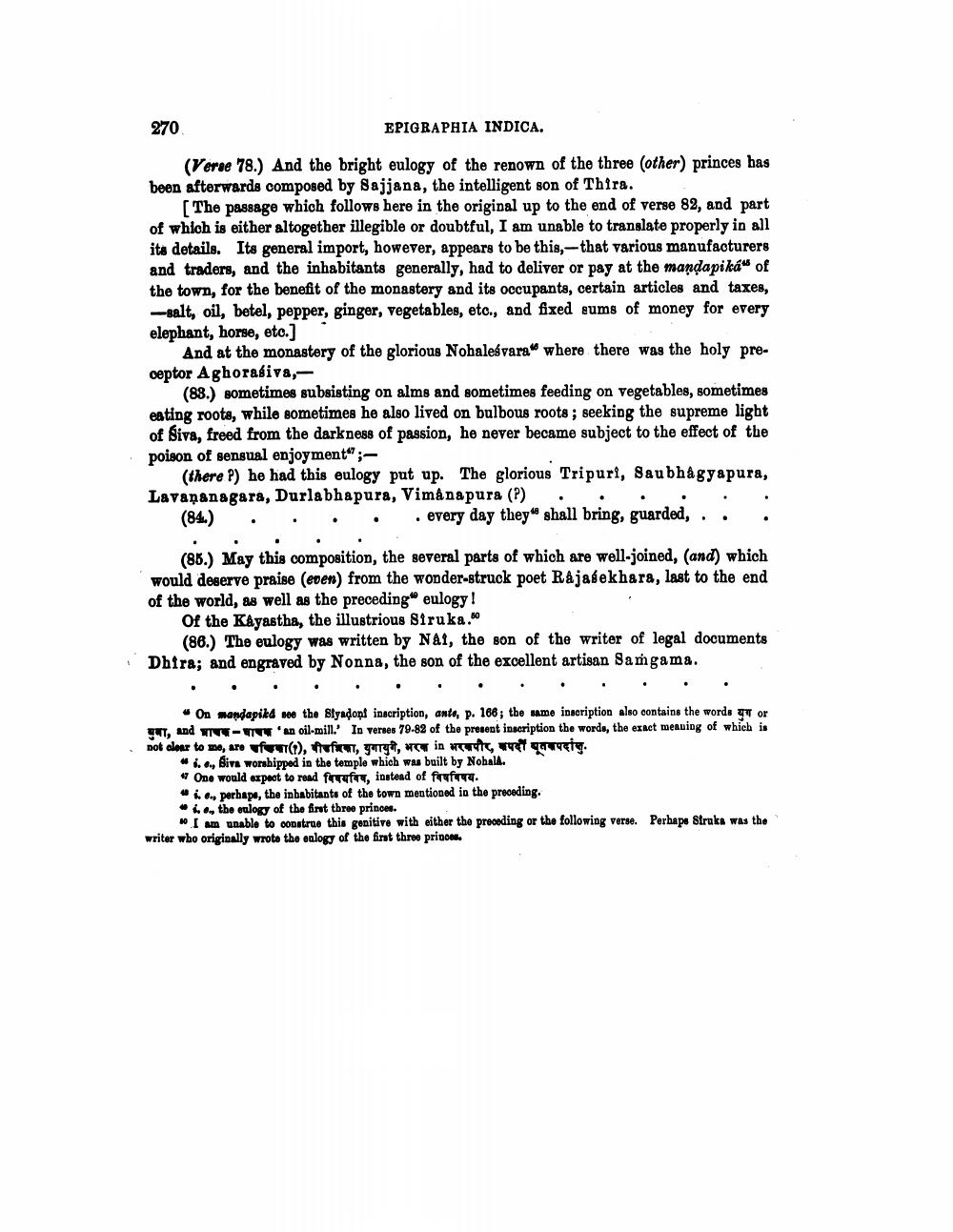________________
270
EPIGRAPHIA INDICA.
(Verse 78.) And the bright eulogy of the renown of the three (other) princes has been afterwards composed by Sajjana, the intelligent son of Thira.
[The passage which follows here in the original up to the end of verse 82, and part of which is either altogether illegible or doubtful, I am unable to translate properly in all its details. Its general import, however, appears to be this,-that various manufacturers and traders, and the inhabitants generally, had to deliver or pay at the mandapiká" of the town, for the benefit of the monastery and its occupants, certain articles and taxes, ---salt, oil, betel, pepper, ginger, vegetables, etc., and fixed sums of money for every elephant, horse, etc.)
And at the monastery of the glorious Nohaleśvara" where there was the holy preceptor Aghorasiva,
(88.) sometimes subsisting on alms and sometimes feeding on vegetables, sometimes eating roots, while sometimes he also lived on bulbous roots ; seeking the supreme light of Siva, freed from the darkness of passion, he never became subject to the effect of the poison of sensual enjoyment";
(there ?) he had this eulogy put up. The glorious Tripuri, Saubhagyapura, Lavananagara, Durlabhapura, Vimanapura (P) .
(84) . . . . . every day they shall bring, guarded, ..
(86.) May this composition, the several parts of which are well-joined, (and) which would deserve praise (even) from the wonder-struck poet Rajasekhara, last to the end of the world, as well as the preceding" eulogy!
Of the Kayastha, the illustrious Siruka.
(86.) The eulogy was written by Nai, the son of the writer of legal documents Dhira; and engraved by Nonna, the son of the excellent artisan Samgama.
to 30
• On mandapikd noo the Slyadons inscription, anto, p. 168; the same inscription also contains the words go or UT, and W - ' an oil-mill.' In verses 79-82 of the present inscription the words, the exact meaning of which is not alone to me, are «f (t), fufiut, yanga, www in www , vult qurmety.
Wi..., Sive worshipped in the temple which was built by NobalA.
One would expect to read विषयविष, instead of विषविषय. • 1 o., perhaps, the inhabitants of the town mentioned in the preceding. . ., the ealogy of the fint three princes.
# I am unable to construe this genitive with either the preceding or the following verse. Perhaps Struka was the writer who originally wrote the ealogy of the first three pridel.




